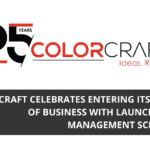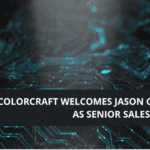My company is planning to rent, rather than buy, our next booth. So as I hunt for rental-exhibit providers, what questions should I ask them before signing a long-term agreement?
Compared to purchasing a new exhibit, renting seems like a short-term commitment with minor risks and a minimal upfront investment. And as such, many exhibitors rush into a long-term rental contract without fully investigating the high points and pitfalls of each agreement and provider. In reality, renting requires just as much forethought, analysis, and comparison as purchasing, regarding everything from fees and terms to supplier selection and contract obligations. Indeed, exhibit rental is a wonderful choice for many marketers, but it’s not something you should charge into blindly just because it seems to involve less risk and a smaller initial cash outlay than a purchase.
So to ensure you’re not flying blind, here are five key questions to ask potential exhibit-rental providers. While certainly not the end-all-be-all of supplier-search topics, the following queries cover key sticking points in the exhibit-rental process.
1. What materials, structures, and ancillary elements are available?
While this seems like an elementary question, exhibitors often make assumptions about what rental providers are willing or able to offer, and then they’re shocked when the supplier is unable to deliver. So talk to your exhibit-rental provider about both its offerings and its limitations.
For example, will your exhibit design comprise only those structural elements the firm has in stock, or is it willing to build or purchase new elements to suit your needs? Is it prepared to mix and match any existing elements you have with its rental inventory to create a hybrid design, and if so, will it refurbish existing pieces to effectively blend with the rental components? Does the firm use a specific exhibit system that’s difficult to integrate with custom components or other systems?
And what material options are available? For example, does the provider carry a wide selection of tensioned-fabric frame shapes and materials? Does it offer variations in finishes, unlimited color palettes, etc.? If an exhibit component or material isn’t in stock, will the firm seek it out for you, and how much will this search and acquisition cost? Plus, aside from the exhibit structure, what rental components does the provider offer, and what will you have to purchase or rent elsewhere? Inquire about everything from audiovisual equipment and multimedia units to lighting and sound systems. Knowing exactly what each rental firm can and can’t provide will help you select the right partner to fit your current and future needs.
2. How are long-term discounts structured into the agreement, and is there an option to purchase?
A long-term rental contract should include some sort of multiple-rental price break. But be sure you understand how your pricing and discounts are structured into the contract and what kind of variables are allowed under your agreement. For example, if you rent the exact same exhibit for five shows and rent a completely different booth for your sixth show, does your discount or pricing change?
Also determine if your discount is front- or back-loaded, or distributed evenly. For example, will you pay $10,000 for your first rental, $8,000 for your second, and so on? Or will you get the same discounted price (e.g., $5,000) for all rentals as long as you rent at least five times during your contract period? Surely, do the math to determine if the pricing structure makes sense for your budget. But also consider the ramifications of severing the contract early. If, for example, your pricing discount requires a minimum number of rentals and you want out of the contract after two, how much will you be penalized?
Along these same lines, inquire about contract-termination clauses. What if your exhibit program changes considerably during the contract period and you need to switch rental structures, discard a custom rental property, or change to a purchased exhibit altogether? And what about rent-to-own options? What if you fall in love with your rental and want to purchase it? Can any of your rental costs be applied to a purchase? Talk through all of these scenarios and more to determine whether your rental contract is flexible or ironclad.
3. What additional fees are involved?
Just as with a purchased exhibit, there are myriad ancillary fees associated with rental exhibits. So ask your provider what costs are included in your contract and what will come out of your pocket later. For example, will you be charged extra to store your exhibit? And if so, how will those fees be calculated if you don’t use the same exact properties at every show (and therefore, don’t require the same amount of storage space during the contract period)?
And who pays for refurbishments? With a short-term rental, the exhibit provider is typically responsible for refurbishment costs. But what if you have a custom rental? Or what happens if a piece of exhibitry is lost in transit or stolen? It’s always better to discuss what-if scenarios prior to signing on the dotted line – and to alter or walk away from a contract that isn’t in your best interest.
4. What additional services are required to manage and/or display the exhibit property?
Determine whether you or your provider will make arrangements for services such as transportation, installation and dismantle, drayage, etc. If the provider is responsible for these services and they’re not part of your rental agreement, how much will they cost, and how much will your supplier mark up each service?
Also inquire as to whether you’re required to use the rental provider or its preferred vendors for services. Many rental firms will only allow their laborers or other firms with which they have experience (and perhaps financial agreements) to handle their properties. This may be financially beneficial to the exhibitor, but it also eliminates your freedom of choice and could force you to sever long-term relationships with your preferred service providers.
5. Can other exhibitors rent the same properties we plan to use?
There are countless reasons why you wouldn’t want competitors to rent your booth out from under you. But what about non-competing firms? Will your exhibit provider rent your components to other companies when they’re not in use? Some firms consider this a no-no, and others feel it’s within their rights to rent their properties as many times as possible. Know where your provider stands on this topic and whether this stance is something you can live with.
Similarly, if your provider is renting properties you use to other exhibitors, determine how far in advance you will need to reserve your components. What happens if a new show pops up on your calendar and your typical rental properties are being used by another exhibitor?
Clearly, these questions are just the tip of the iceberg when it comes to long-term rental agreements and providers. However, these five queries should help narrow your provider search and hopefully prompt further queries to deepen your analysis. Contact ColorCraft today to discuss your next rental exhibit.






